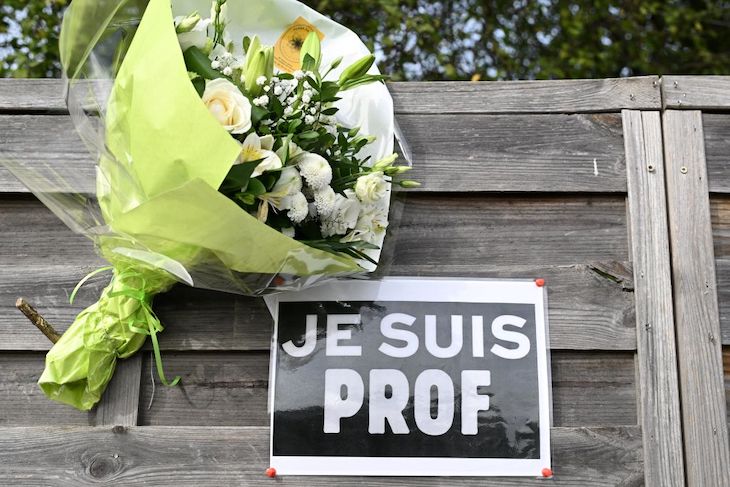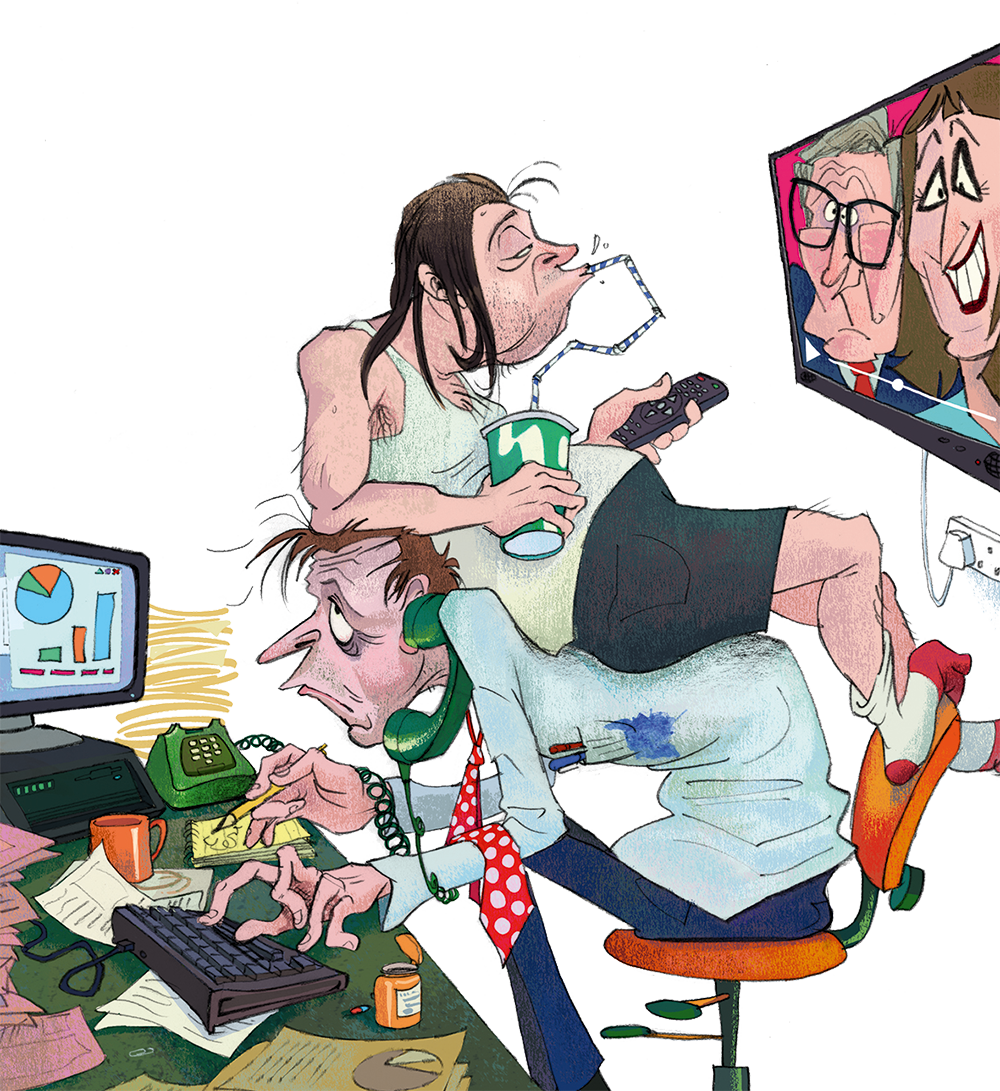It is almost ten years since I and two million Parisians walked through the French capital on a cold Sunday in January 2015. On our minds were the staff of Charlie Hebdo, murdered four days earlier by two Islamic extremists; in our hands were pens, crayons and pencils, brandished to demonstrate our faith in free speech. World leaders attended and the global unity was uplifting; but it turned out to be largely ephemeral, nowhere more than in Britain.
Has Britain’s heart ever really been in the fight for free speech in the past decade?
As Allison Pearson of the Daily Telegraph recently discovered, Essex Police no longer uphold the spirit of ‘Je Suis Charlie’, and nor does Private Eye, whose idea of satire these days is to take a soft line on the intimidation of journalists by the police.
But has Britain’s heart ever really been in the fight for free speech in the past decade? Less than a month after the attack, thousands gathered in London to protest against Charlie Hebdo, waving placards on which were scrawled slogans such as ‘Learn some manners’.
Meanwhile, Labour’s shadow home secretary, Yvette Cooper was announcing plans to draw up a ‘blacklist’ of people found guilty of homophobia and other hate crimes if ever her party came to power.
As for the police, they spent the weeks after the attack visiting newsagents to demand details of who had been purchasing Charlie Hebdo’s special edition. ‘It would be funny if it didn’t reflect a more general worrying increase in abuse of police powers in invading privacy and stifling free speech in Britain,’ said Jodie Ginsberg, chief executive of the campaign group Index on Censorship.
Three months after two Islamists had wiped out the staff of Charlie Hebdo, the London-based Islamic Human Rights Commission (IHRC) bestowed on the magazine a posthumous honour (as voted for by members of the British Muslim community): the Islamophobe of the Year award.
In 2018, I asked in a Coffee House piece ‘What Happened to Je Suis Charlie?’ I quoted Baroness Sayeeda Warsi, the first Muslim to serve as a cabinet minister, whose response in 2015 to the massacre was to state: ‘We live in a liberal democracy, where giving and taking offence is part and parcel of everyday life.’
She’d had a change of heart by 2018. In an op-ed in the Guardian, Warsi criticised Boris Johnson, who had defended a woman’s right to wear the Islamic burqa even if it made them look ‘like a letter-box’. Describing Johnson’s remarks as “indefensible”, Warsi said: ‘Language is so crucial. Politicians and policymakers particularly have a responsibility to help make the space of belonging bigger, to ease that path towards integration.’
At Prime Minister’s Questions on Wednesday, Labour MP Tahir Ali asked Keir Starmer if he will ‘commit to introducing measures to prohibit the desecration of all religious texts and the prophets of the Abrahamic religions?’
Starmer didn’t rule out the idea, replying that his government is ‘committed to tackling all forms of hatred and division, including, of course, Islamophobia in all of its forms.’
Ali should save his breath. Britain already has an unofficial blasphemy law, one enforced by angry mobs, like the one that congregated outside Batley Grammar school in 2021 to hound a teacher into hiding (where he remains), or those who forced cinema chains to withdraw films.
In France, there is more resolve to defend the right of free speech. Successive governments had consistently rejected the concept of Islamophobia; in 2021 it published a report stating that it is a strategy ‘imposed by the Islamists with the aim of banning any form of criticism of radical Islam…to introduce an offence of blasphemy’. As examples they cited Charlie Hebdo and Salman Rushdie, who was attacked by an Islamist in 2022, 33 years after a fatwa had been issued against him.
Unfortunately, in recent years the far-left in France, led by Jean-Luc Melenchon, has forsaken freedom of expression in order to court the Muslim vote.
Melenchon was a good friend of one of the murdered cartoonists Stéphane Charbonnier – aka Charb – and at his funeral he denounced the ‘religious fanatics’ responsible for his death. Within four years, Melenchon was attending anti-Islamophobia marches where some of the crowd shouted ‘Allah Akbar’
In an open letter to Melenchon, Charlie Hebdo told him: ‘Regain a hint of the ideological spine you still had on 16 January 2015, when you paid tribute to your “comrade” Charb because…I’m not sure he’d want to continue being your “comrade”.’
Paty’s ‘crime’ was to have shown his class a caricature of prophet Muhammad
To coincide with the tenth anniversary of the Charlie Hebdo attack, Valérie Pécresse, president of the Greater Paris region is launching in secondary schools a ‘Cartoons and Democracy’ project with the collaboration of the satirical magazine.
While the project won’t feature caricatures of Jesus, Moses, the Pope or the Prophet it will tackle religion. Pécresse has stressed that ‘no subject is off-limits’ and the ‘starting point of this project is the Islamist attacks’. She added that there is ‘an undeniable self-censorship among our teachers when it comes to these subjects’.
That’s understandable given that two teachers – Samuel Paty and Dominique Bernard – have been murdered at their place of work in recent years by Islamists.
The trial of eight people accused of complicity in the murder of Paty in 2020 is ongoing, and this week the teenage girl who initiated the false smear campaign took the stand. Expressing little emotion, the 17-year-old told Paty’s family: ‘I would like to apologise…I destroyed your lives.’
Paty’s ‘crime’ was to have shown his class a caricature of prophet Muhammad from Charlie Hebdo as part of a discussion about the importance of free speech. For that blasphemous act he was decapitated outside his school.
In an interview in 2012, Charlie Hebdo’s Stéphane Charbonnier explained why he would continue drawing cartoons despite the death threats: ‘I’d rather die standing than live on my knees’.
Europe is struggling to honour Charbonnier’s memory. Too many people in the last decade have dropped to their knees, terrified into submission by the tyranny of ‘Islamophobia’.








Comments